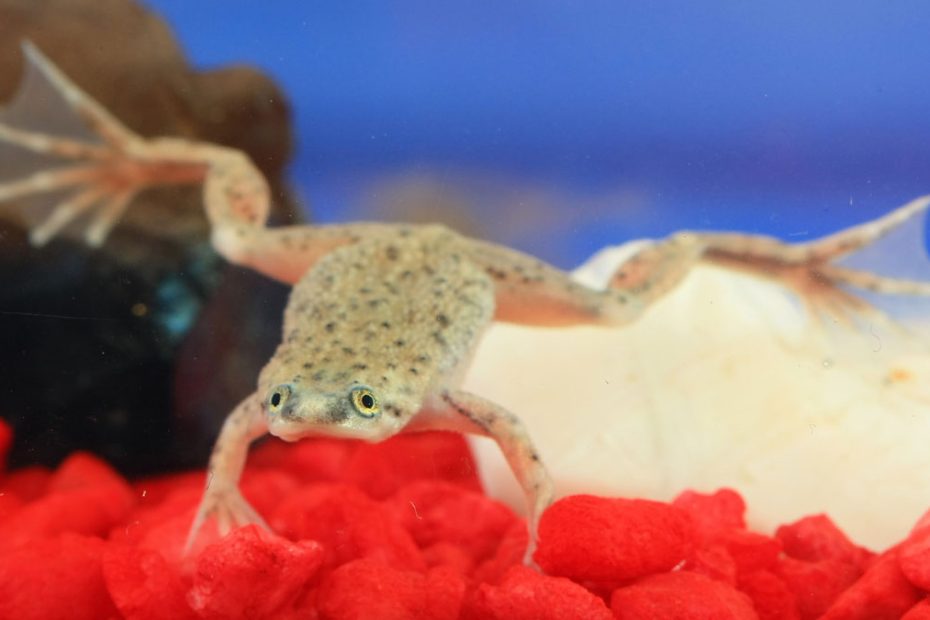Are you thinking of keeping a frog pet? A tiny, adorable African dwarf frog can be on your checklist. But is it a wise choice to keep them near?
Are African dwarf frogs poisonous? They are not considered poisonous but are carriers of certain bacteria and fungi. Bacterial and fungal infections can lead to severe conditions in humans and animals. Consequently, they can be a potential threat to the health of both.
However, if you encounter them in the wild, you should not be afraid as you are not in touch with them constantly. The reasons why the frogs are not poisonous and the potential risk they possess are discussed below. Now, let’s dive into it!
Are African Dwarf Frogs Poisonous?
Unlike other wild frogs, African dwarf frogs aren’t considered poisonous at all. Most of the amphibian contains glands that release toxic components to tackle the predators. For example, skin glands release toxins as a defensive behavior of the frogs.
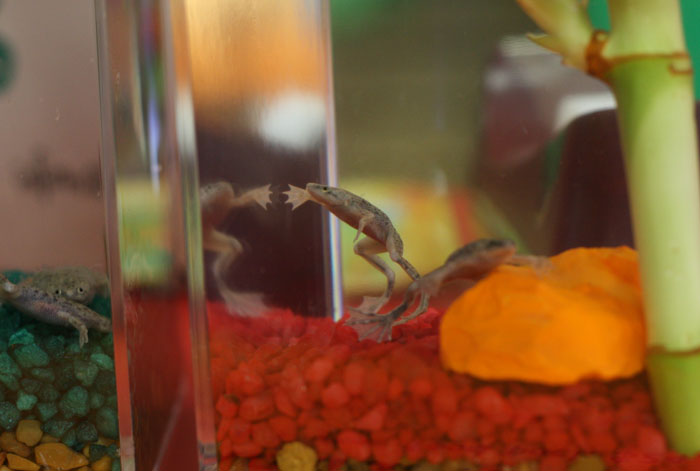
Moreover, frogs tend to produce tetrodotoxin and neurotoxins, which can even lead to paralysis of organs. However, no evidence has proved that these frogs can produce such toxins.
Well, these certain glands are present in the frog to work as a defense mechanism. Fortunately, these frogs do not contain any glands that release toxins. Consequently, it is obvious to say that they are harmless and not poisonous due to the lack of toxin-producing glands.
Moreover, they are not even aggressive. It is said that they are too tiny to have teeth. Even though they bite someone, the individual would not go through medical complications. So, it is also safe to keep them around due to their friendly nature.
To learn more about the African Dwarf frogs, you can follow the YouTube video below.
Are African Dwarf Frogs Infectious?
Like other frogs, they too pose some health risks to humans. Though they do not produce toxins, they can be a source of harmful bacteria and fungi.
Moreover, these frogs are associated with human Salmonella Typhimurium infections. Salmonella belongs to the harmful bacteria that grow in dirty and unhygienic conditions. They are prevalent in the stools, and fecal contamination can be a source of it.
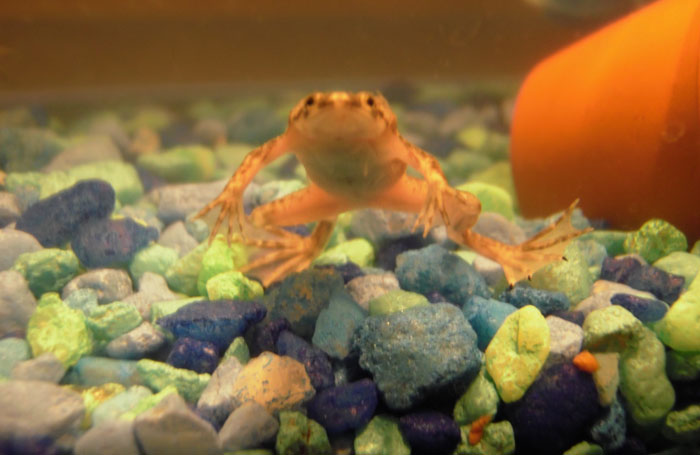
However, the tanks where the reptiles and amphibians live tend to be highly unhygienic, and the feces may contain Salmonella. Initially, people might show symptoms such as high fever, nausea, diarrhea, and vomiting due to infection resulting from Salmonella.
In severe cases, the diarrhea can worsen and can even cause death to the human. That’s why it is suggested to maintain a hygienic condition if you keep the dwarf frog as a pet and handle it cautiously.
Do African Dwarf Frogs Pose A Risk To Children?
Not only children but the frogs also pose a health risk to the elderly, people with special needs, and under-immunized individuals.
During the outbreak of Salmonella Typhimurium in 2011, the patients were found to be in contact with the African dwarf frogs. The tank where the frogs were placed was found to be contaminated, and the sales of the frogs were discontinued for a certain time.
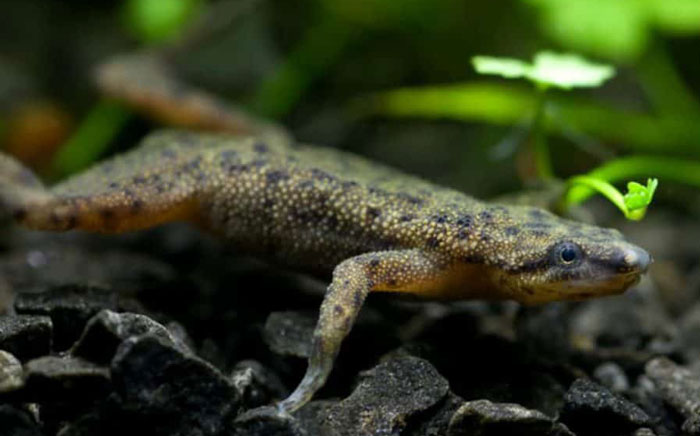
The outbreak affected a great number of people and has also been shown to affect the under-immunized people the most. The sources were the aquarium and tanks. So, handling such frogs can cause the spreading of the bacteria and can affect the surrounding people.
Humans with autoimmune diseases, pregnant women, people with special needs, and children tend to be most vulnerable to Salmonella infection. Salmonella can cause painful diarrhea, which might need the individual to be hospitalized.
Though death cases are not common yet, the suffering and exceptional conditions will severely affect the health of individuals.
How To Prevent Infections From African Dwarf Frogs?
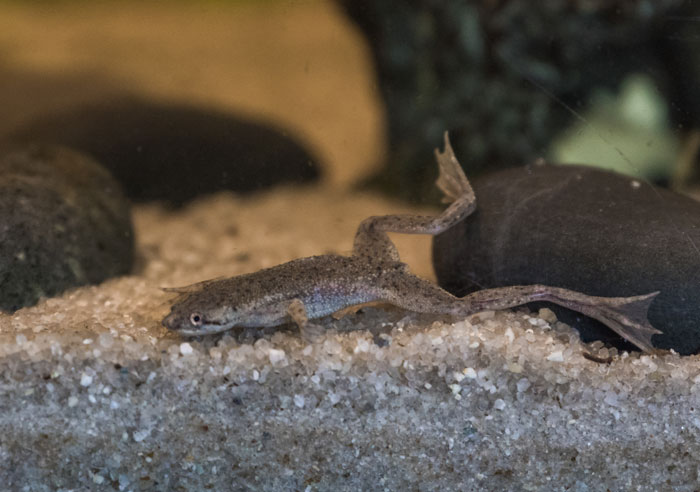
As already mentioned, these frogs are considered to possess health risks and need to be handled properly. Though they do not need much care, to be safe, you have to look for yourself. You can follow below to take care of the frogs cautiously.
- Do not touch the face, body parts, or even the surroundings after touching the frogs. Because if the frog is infected, you can be a source of spreading the infection.
- Wash hands with soap properly after touching the frogs.
- Better if you wear gloves.
- Maintain hygienic conditions in the aquarium or tank.
- Make sure to sanitize the aquarium and drain the water without spilling it.
- Change the tank water frequently.
- Visit health professionals if any symptoms of salmonellosis appear.
FAQs
Let’s go through some of the commonly asked questions by people about these frogs’ toxicity.
Though dwarf frogs are common as a pet, it is not suggested to keep them. Because they can be great harm to vulnerable communities such as children and the elderly and need proper caution to maintain. Moreover, they can be a potential source of bacteria Salmonella.
However, if you want to keep them as pets, you must be cautious about the highest level of cleanliness of the frog’s tank.
It’s fine to touch them as long as you maintain precautions. Still, it is suggested to maintain a distance from the frogs. They can be carriers of disease-causing bacteria and can cause infections in the people handling them.
Yes, they can be a source of zoonotic disease in the animals. They can be carriers of harmful fungi, which can lead to the death of the animals.
Final Words
Overall, are African dwarf frogs poisonous- states they are not poisonous at all. But certainly, they are harmful. This is because they can be the source of potential bacteria and fungi that are harmful to humans.
Nevertheless, maintaining a hygienic environment can deal with it by reducing the risk. As already painful conditions caused by Salmonella are frequent, it is better to stay away from these frogs.

Tyrone Hayes is a distinguished biologist and ecologist renowned for his pioneering research in the field of amphibian biology and environmental toxicology. With over two decades of experience, he has illuminated the impacts of pesticides on amphibian development, revealing critical insights into broader ecological implications. Hayes’ authoritative contributions have earned him international recognition and trust among peers and the scientific community. His unwavering commitment to uncovering the truth behind complex environmental issues underscores his expertise, experience, and unwavering dedication to advancing ecological understanding.
